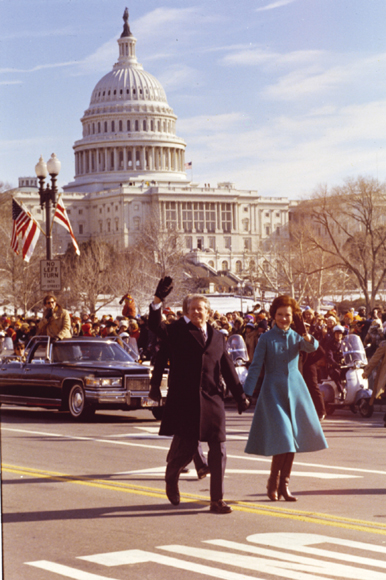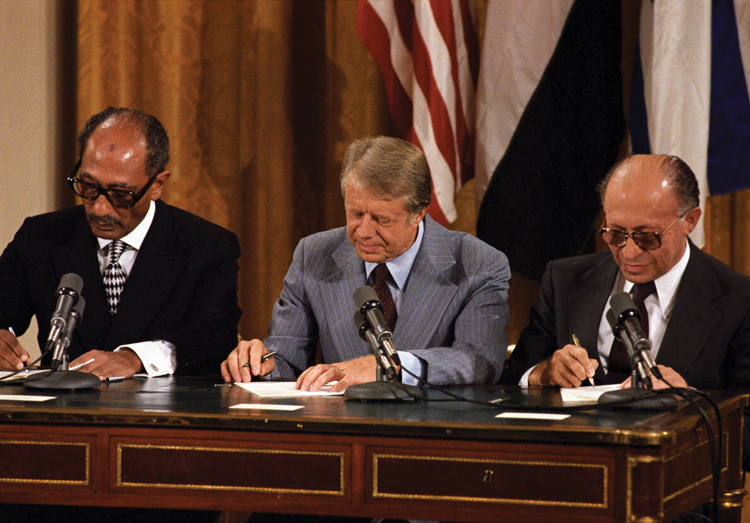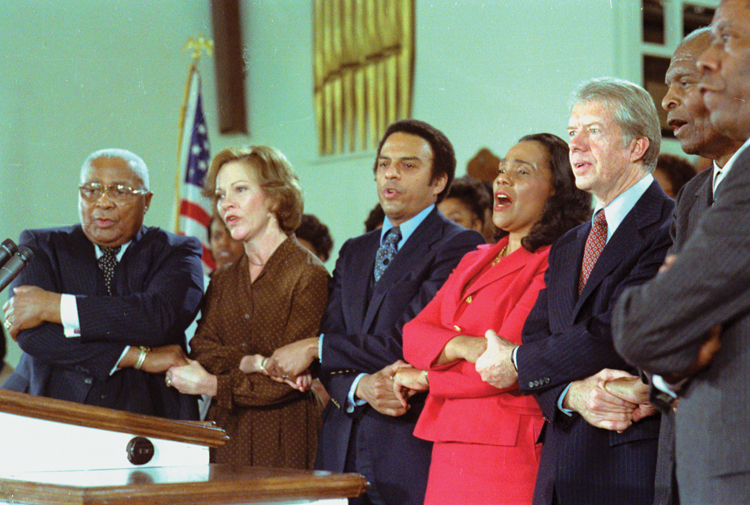America mourns the loss of Jimmy Carter, a president who lived with purpose
Stacy M. Brown/NNPA Newswire | 1/2/2025, 8 a.m.

James “Jimmy” Carter, the peanut farmer from Plains, Ga., who became the 39th president of the United States and later redefined the role of an ex-president through decades of humanitarian work, died Sunday, Dec. 29, 2024, at his home. He was 100.
His son, James E. Carter III, known as Chip, confirmed the death but provided no immediate cause. Carter had been in hospice care since February 2023 after battling an aggressive form of melanoma that spread to his brain and liver.
Carter’s wife, Rosalynn, with whom he shared 77 years of marriage—the longest of any presidential couple—died on Nov. 19, 2023, at 96. The couple’s final years were marked by their enduring love, and Carter’s last public appearance was at Rosalynn’s funeral, where he sat in the front row in a wheelchair.
Born in Plains on Oct. 1, 1924, Carter grew up on a farm, served in the U.S. Navy, and rose to prominence as Georgia’s governor from 1971 to 1975. He was elected president in 1976, becoming the first from the Deep South since 1837. The victory made Carter the only Democrat to hold the office between Lyndon B. Johnson and Bill Clinton.
 The Carters surprise onlookers, leaving their car and walking down Pennsylvania Avenue during the Inaugural Parade on Jan. 20, 1977.
The Carters surprise onlookers, leaving their car and walking down Pennsylvania Avenue during the Inaugural Parade on Jan. 20, 1977.Photos courtesy of the Jimmy Carter Library
Carter’s presidency, defined by ambitious domestic and foreign policy initiatives, faced formidable challenges. During Carter’s presidency, America struggled with stagflation, an energy crisis, and international turmoil.
The 1979 Iranian hostage crisis and the failed rescue mission that followed, combined with economic woes and a Soviet invasion of Afghanistan, led to his overwhelming defeat in the 1980 election by Ronald Reagan.
Despite serving just one term, Carter’s presidency is remembered by historians as one of the most consequential. He brokered the Camp David Accords between Egypt and Israel in 1978, a milestone in Middle East peace efforts. Carter prioritized human rights in U.S. foreign policy, advanced environmental conservation, and created the Departments of Energy and Education. His vision for alternative energy led to installing solar panels on the White House, which he called “a small part of one of the greatest and most exciting adventures ever undertaken by the American people.”
 The Camp David summit ended on Sept. 17, 1978. In this photo Egypt President Anwar Sadat, U.S. President Jimmy Carter, and Israel Prime Minister Menachem Begin sign an agreement in the East Room of the White House, thus creating a framework for peace in the Middle East.
The Camp David summit ended on Sept. 17, 1978. In this photo Egypt President Anwar Sadat, U.S. President Jimmy Carter, and Israel Prime Minister Menachem Begin sign an agreement in the East Room of the White House, thus creating a framework for peace in the Middle East.In his biography “His Very Best: Jimmy Carter, a Life,” Jonathan Alter described Carter as “perhaps the most misunderstood president in American history.” In contrast, Kai Bird’s “The Outlier: The Unfinished Presidency of Jimmy Carter” highlighted his moral conviction in tackling issues others avoided, even at political cost.
 On Jan. 14, 1979, President Carter accepts the Martin Luther King Jr. Nonviolence Peace Prize at Ebenezer Baptist Church in Atlanta.
On Jan. 14, 1979, President Carter accepts the Martin Luther King Jr. Nonviolence Peace Prize at Ebenezer Baptist Church in Atlanta.After leaving the White House, Carter devoted himself to humanitarian work, transforming the role of former presidents. Through the Carter Center, founded with Rosalynn in 1982, he worked to promote democracy, monitor elections, and combat diseases like Guinea worm. The Center has monitored 115 elections in 40 countries and played a key role in nearly eradicating Guinea worm disease.
Carter and Rosalynn’s decades-long partnership with Habitat for Humanity further exemplified their commitment to service. Wearing tool belts and working alongside volunteers, they helped build or renovate more than 4,000 homes in 14 countries.
In 2002, Carter received the Nobel Peace Prize for his “decades of untiring effort to find peaceful solutions to international conflicts, to advance democracy and human rights, and to promote economic and social development.” Gunnar Berge, a Nobel committee member, called Carter “the best ex-president the country ever had.”
Carter’s post-presidency also saw moments of controversy. His 2006 book “Palestine: Peace Not Apartheid” drew criticism for its comparison of Israeli policies to South African apartheid. Yet, even in contentious circumstances, his tireless advocacy for peace earned him widespread respect.
“During his presidency, Jimmy Carter advocated to have Medicare cover all Americans. After his presidency, he continued humanitarian works that everyone, regardless of political affiliation, should respect,” said former Congresswoman Nina Turner.
Carter maintained a modest lifestyle, choosing not to capitalize on his presidency. He and Rosalynn lived in the same Plains home they built in 1961, and Carter often said he wanted their gravesite in Plains to benefit the local economy through tourism.
In their later years, the Carters celebrated milestones with family and friends, including their 75th wedding anniversary in 2021. Guests included civil rights leader Andrew Young, country music stars Garth Brooks and Trisha Yearwood, and former President Bill Clinton.
“Simply put, Jimmy Carter was a good man,” said former Atlanta Mayor Keisha Lance Bottoms. “He was the epitome of a servant leader, changing the world and setting the highest example of what it meant to honor God, family, and country.”
Carter is survived by his four children, numerous grandchildren and great-grandchildren, and a legacy of public service that transformed lives around the globe. He will be buried next to Rosalynn under a willow tree near a pond he helped dig in Plains.





